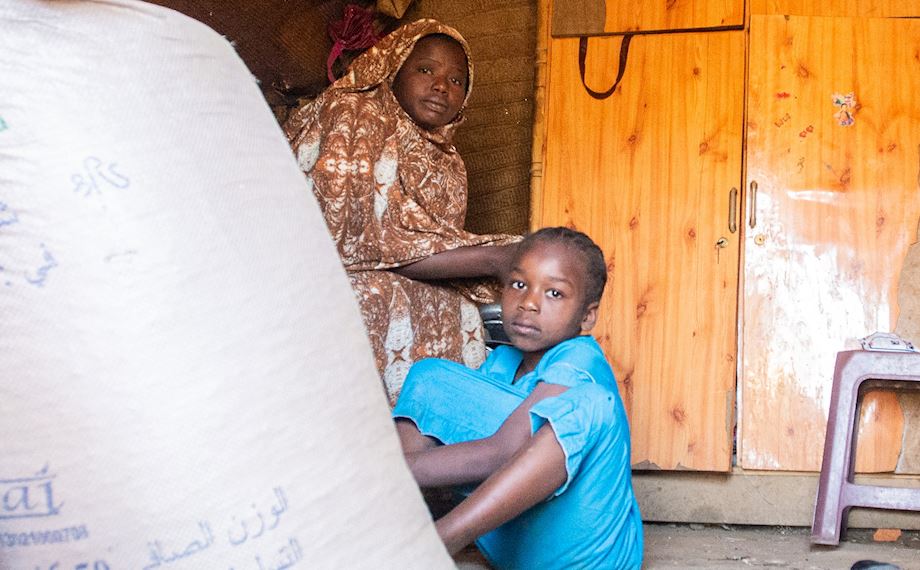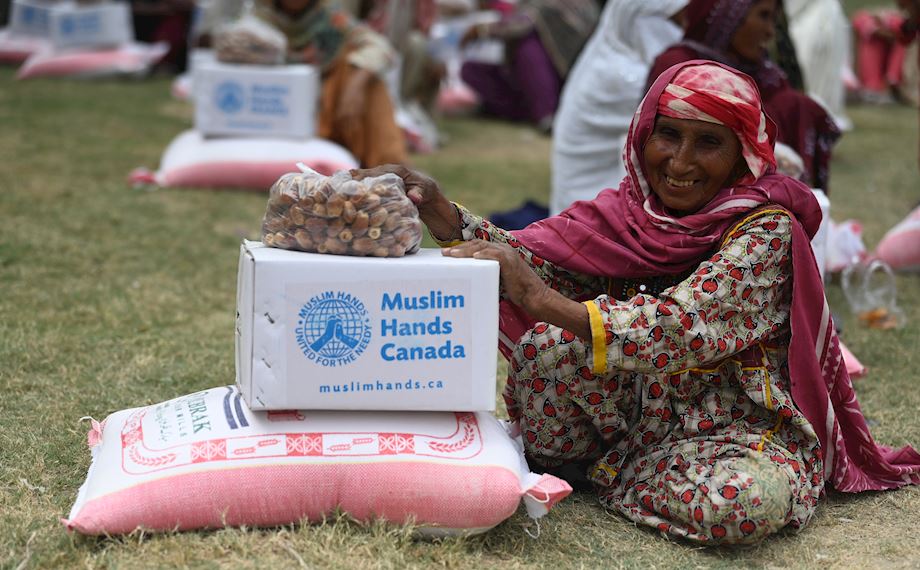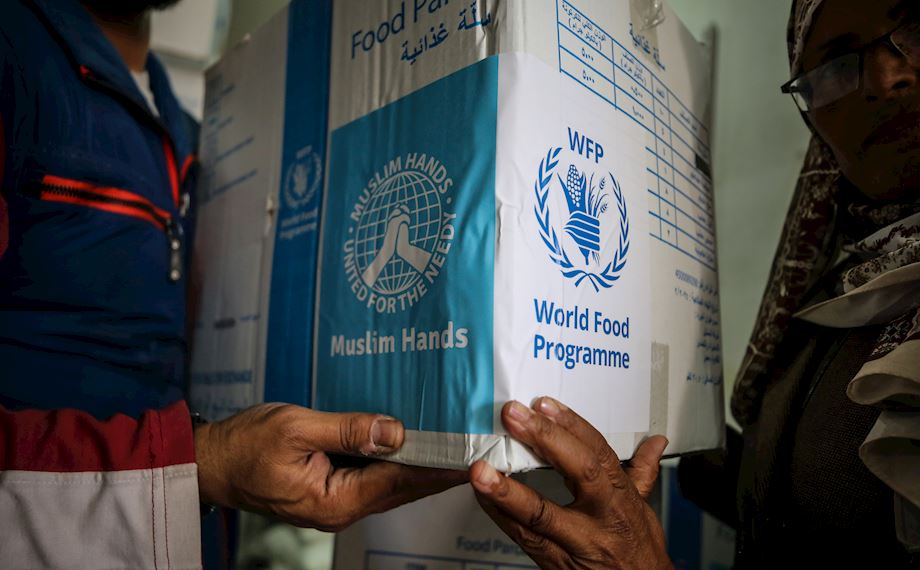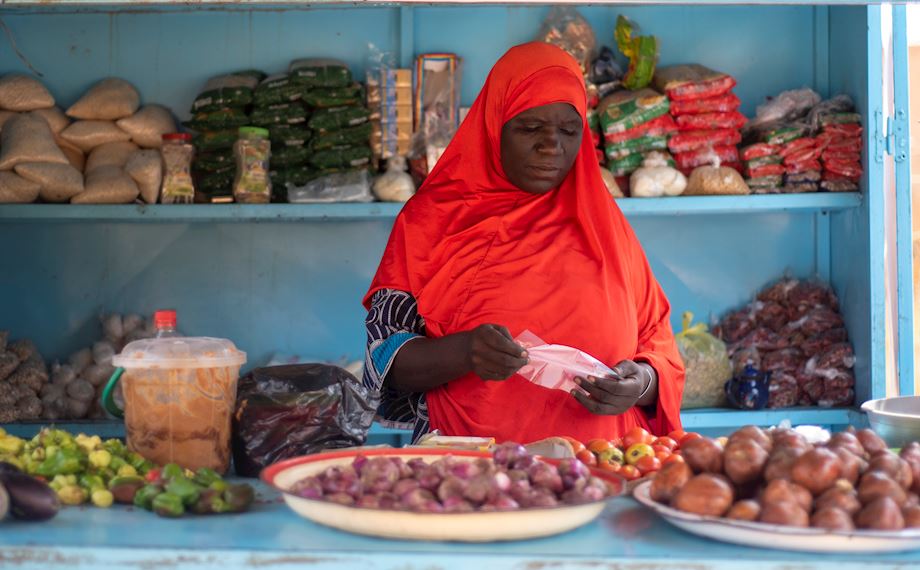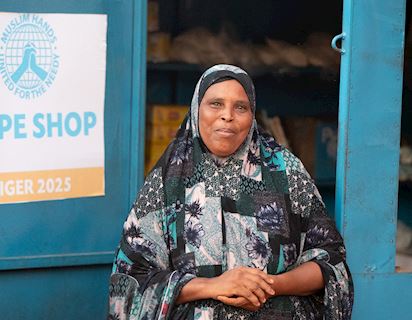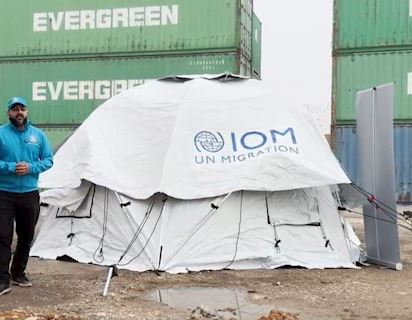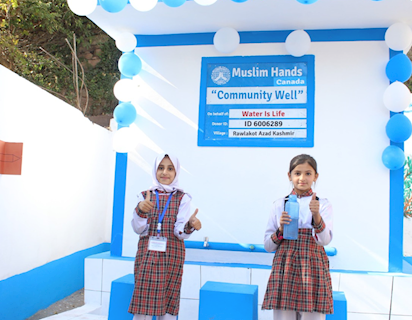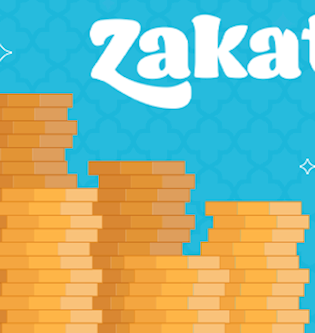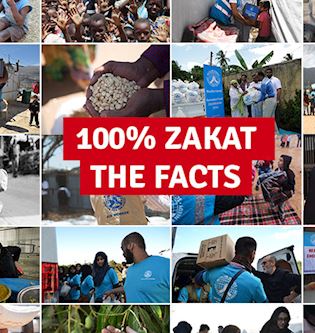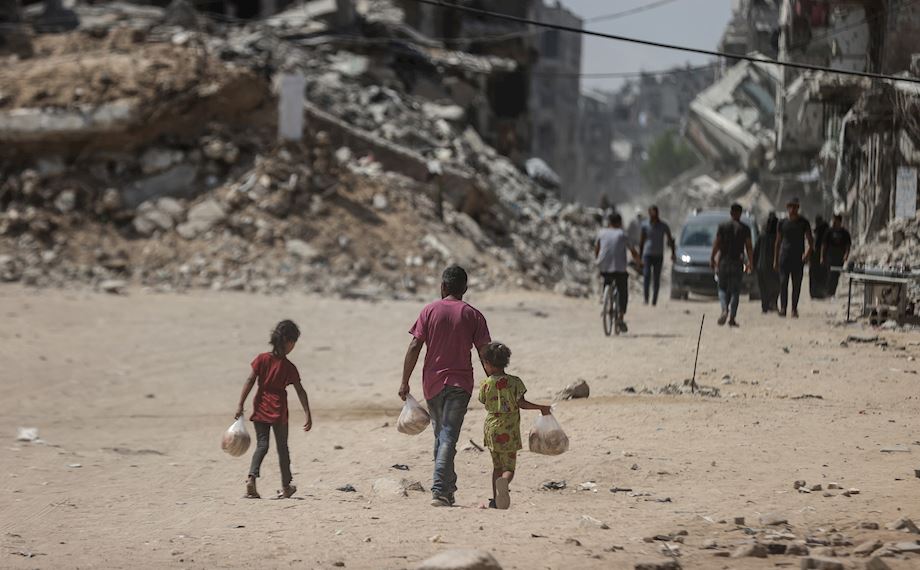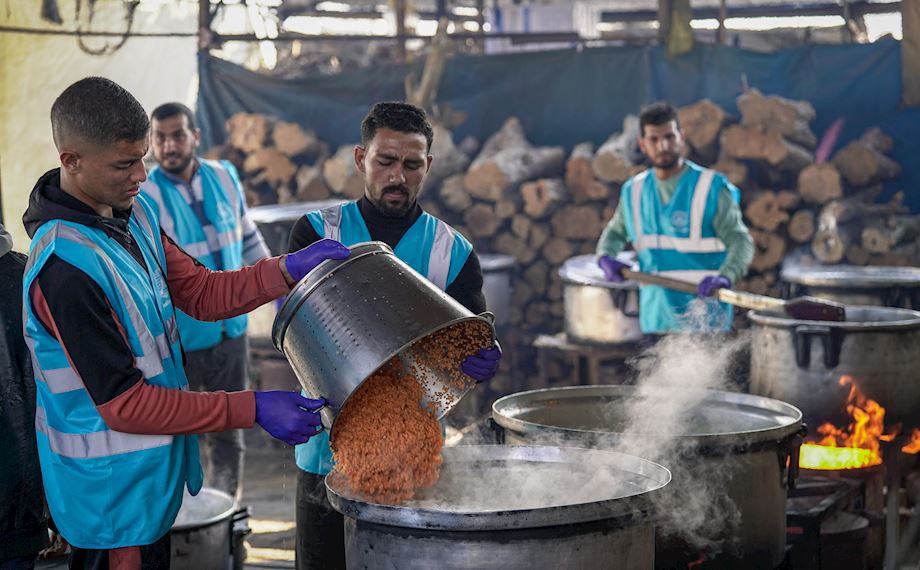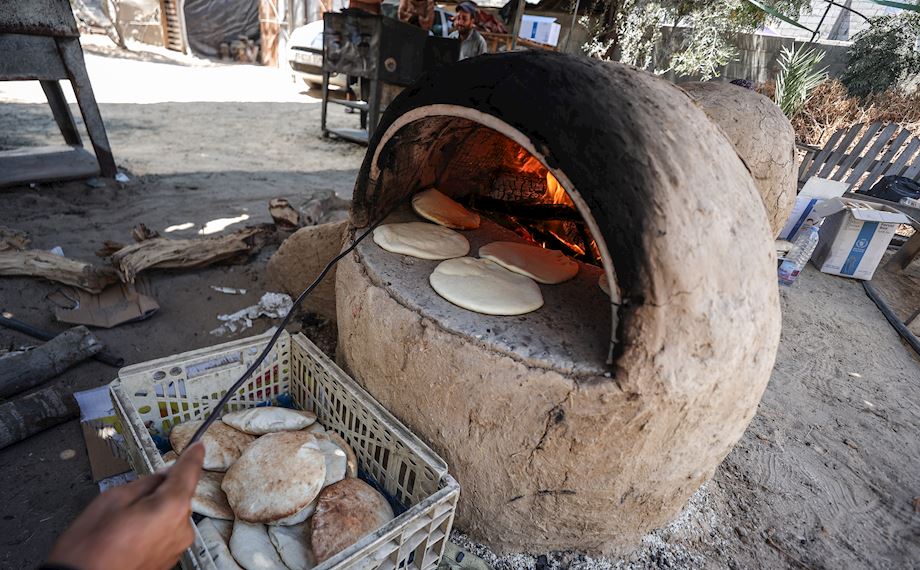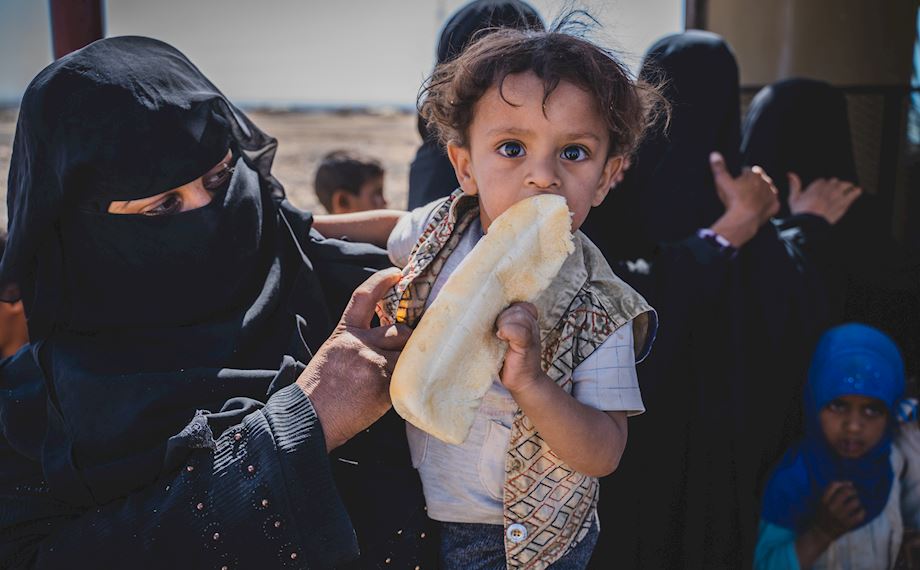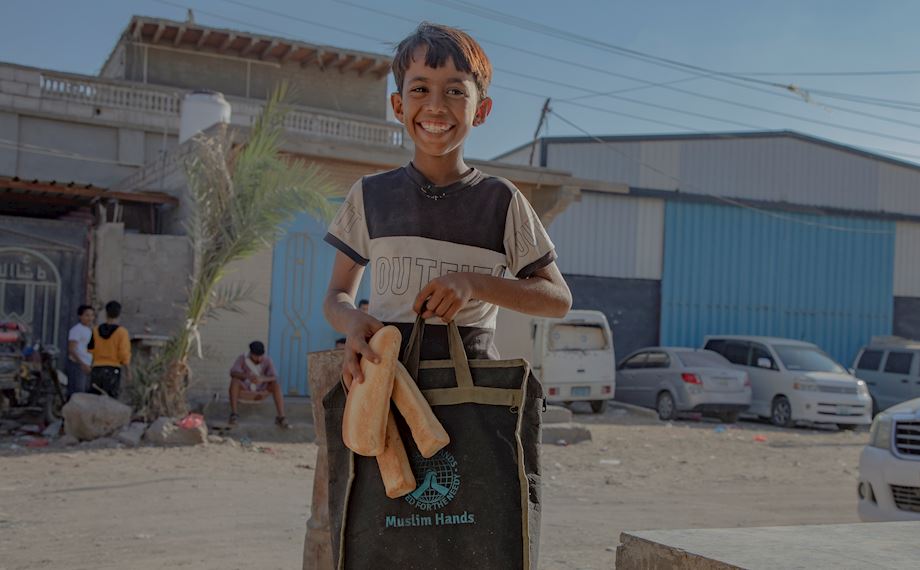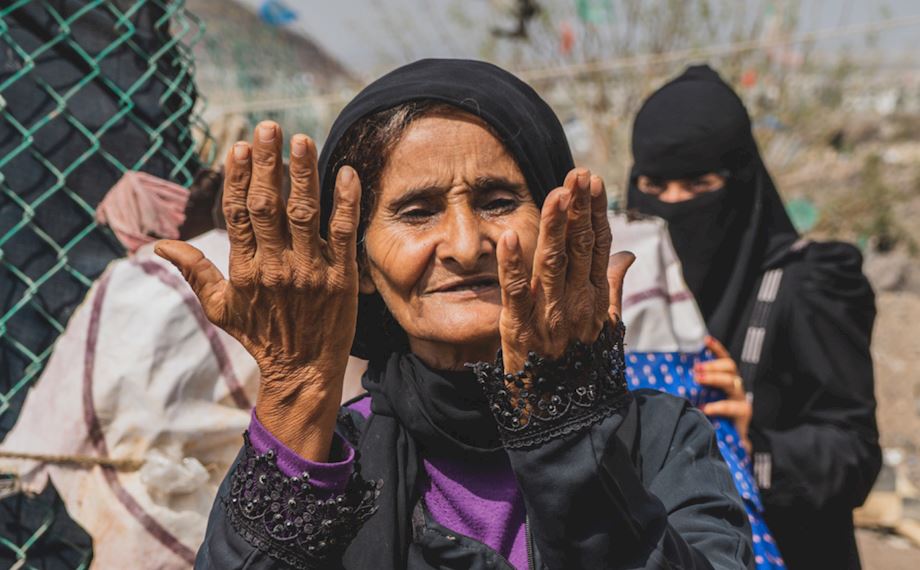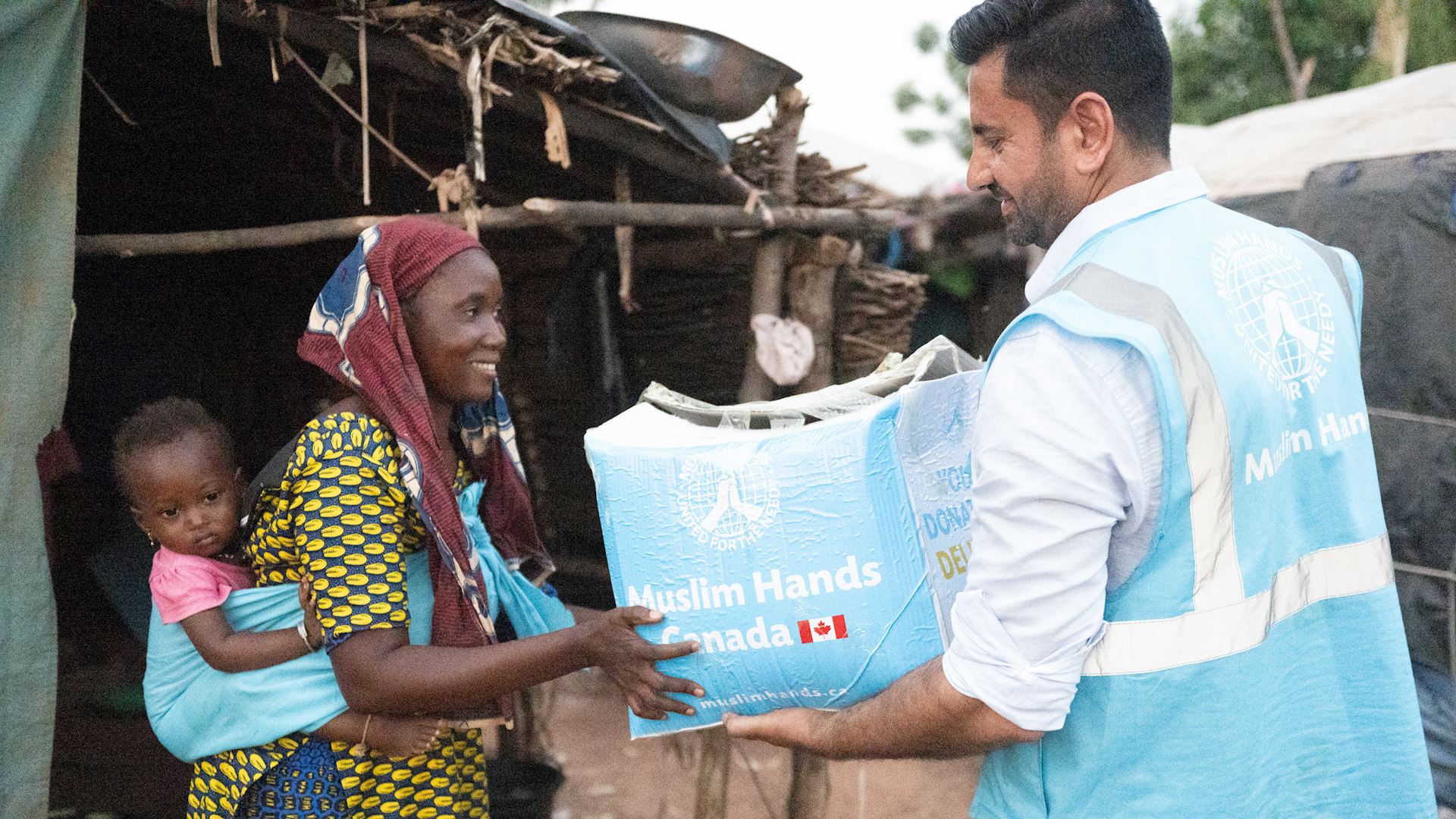
Zakat 2026
Trusted with Your Zakat Since 1993
Scroll Page
Give Your Zakat with Confidence to Muslim Hands
As a Muslim charity, we recognize that Zakat is a sacred responsibility (Amanah).
Since 1993, Muslim Hands has been delivering your Zakat to those in need, across countries including Yemen, Pakistan, Somalia, the Gambia, Mali, Niger, and Senegal.
When you give your Zakat to Muslim Hands Canada, our dedicated team of experts ensures it reaches those most in need - whether they are facing medical emergencies, affected by natural disasters such as floods or earthquakes, or caught in conflict.
Zakat Eligible Projects
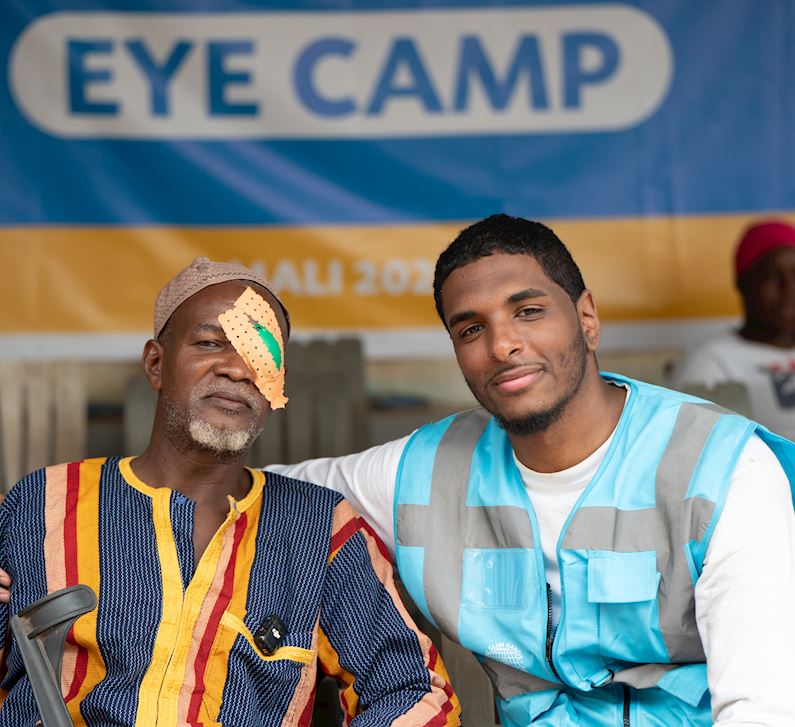
What is Zakat ?
Zakat is one of the five pillars of Islam, an obligatory charity that must be paid by every adult Muslim in sound mind who possesses wealth beyond a certain threshold, known as the nisab.
Muslim Hands delivers Zakat-eligible projects that reach the most vulnerable, creating lasting impact through trusted local expertise.
Trust Muslim Hands with Your Zakat
Give Your Zakat with Confidence
Muslim Hands have been delivering your Zakat since 1993.
Most of our projects our Zakat eligible
Our dedicated team of experts ensure your Zakat reaches those most in need
Our Zakat policy is scholar-verified
You can give your Zakat to causes that matter to you the most
Your Zakat enables us to save and transform lives worldwide
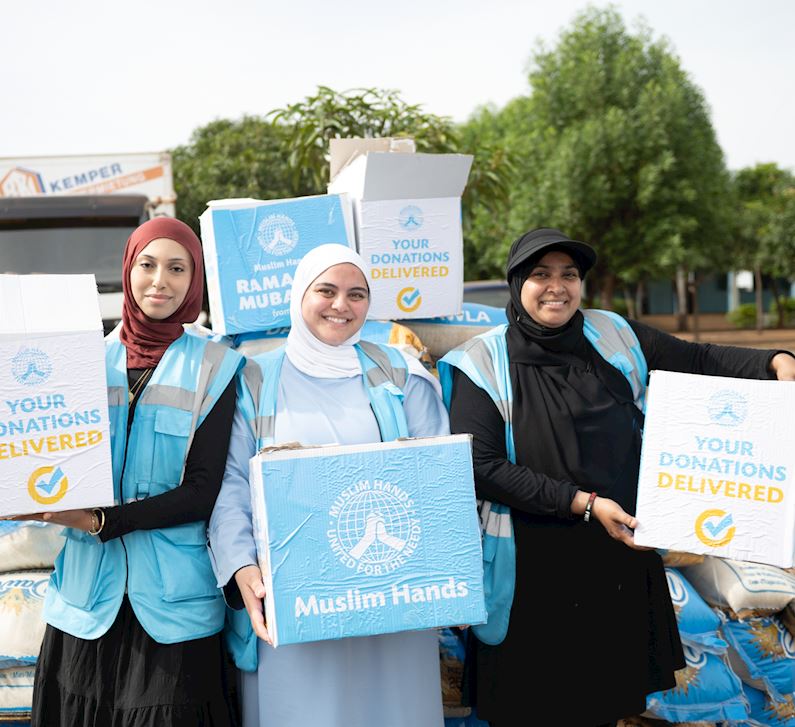
What is Nisab ?
The Nisab 2026 is the minimum value of wealth a person must possess to pay Zakat. Gold and silver are two values used to calculate the Nisab threshold. The Prophet (saw) set Nisab at a rate equivalent to 87.5 grams of gold or 613 grams of silver.
Since we don’t use silver/gold as a currency, checking current market rates, can help you determine the exchange value of Nisab 2026 rates.
Use our free online Zakat Calulcator to help you calculate your Zakat 2026
Calculate your Zakat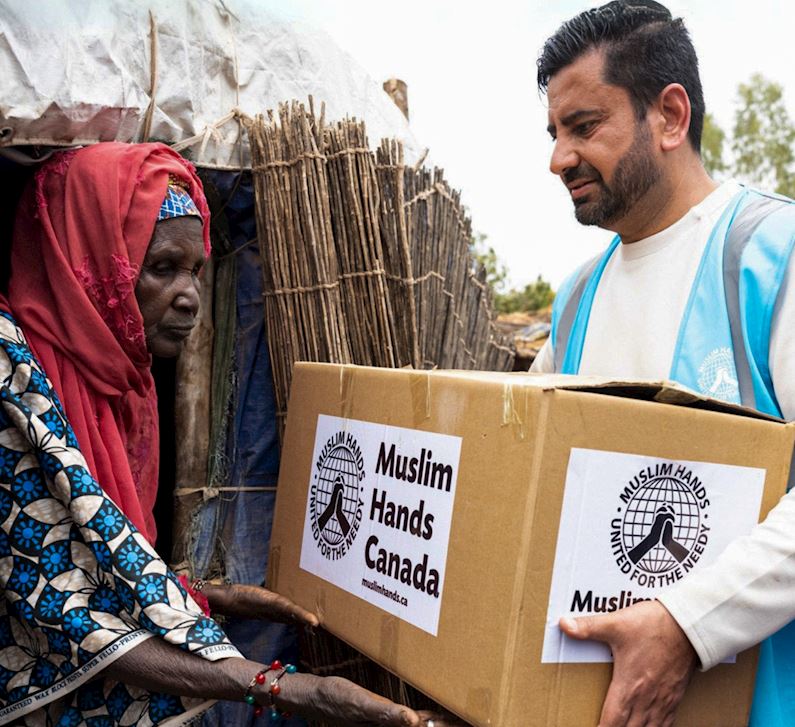
How Does Muslim Hands Spend my Zakat?
Your Zakat Helps provide:
- Emergency Assistance
- Orphan Care
- Water, Sanitation & Hygiene
- Education
- Shelter & Protection
- Livelihood Support
- Medical Care
Your Zakat saves lives and empowers communities in need.
Where Muslim Hands Canada Spends Your Zakat ?
You have enabled us to transform lives in the following countries:
Mali
Niger
Pakistan
Yemen
Senegal
The Gambia
Turkey
Somalia
Palestine
Sudan
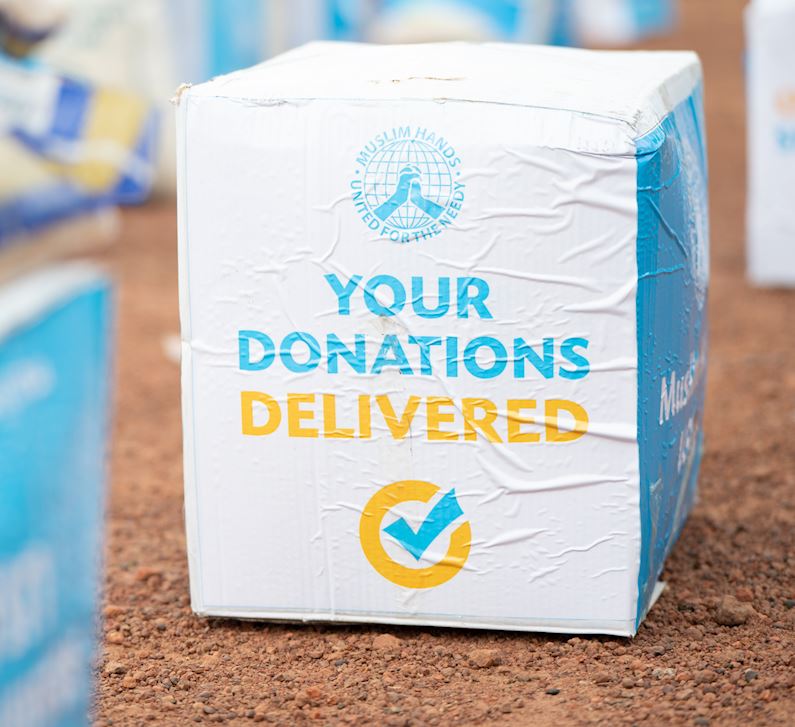
How to Calculate my Zakat 2026 ?
If the wealth has been in the individual’s possession for a full year, they must give 2.5% of it as Zakat.
Our free online Zakat calculator does all the calculations for you.
Input the required details, and it will provide an accurate amount for your Zakat, ensuring you can fulfill this important obligation with ease and confidence.
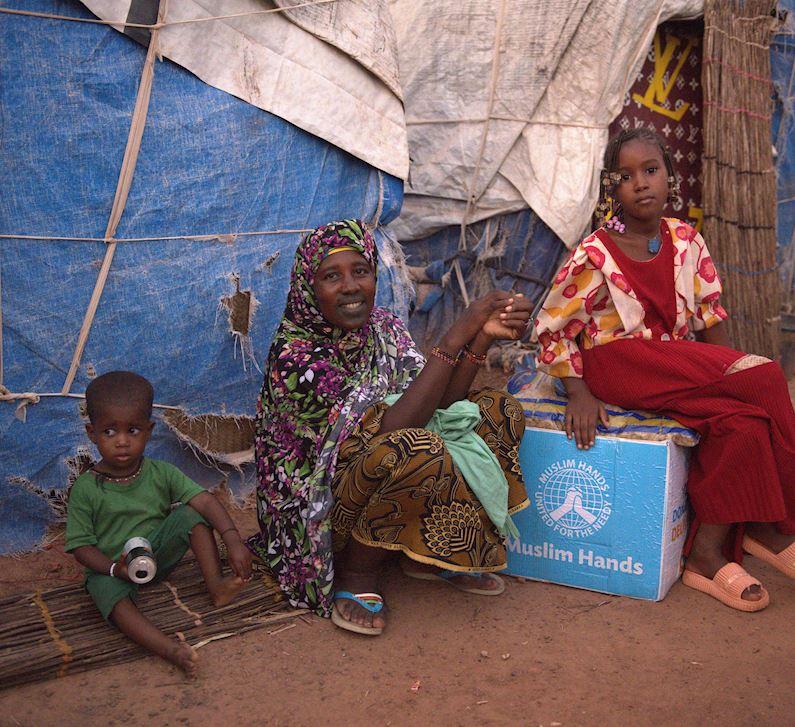
Who is Eligible to Receive my Zakat?
- The Poor (Al-Fuqara)
- The Needy (Al-Masakin)
- Zakat Collectors (Amil Zakat)
- New Muslims (Muallafatul Qulub)
- Slaves or Captives (Riqab)
- Debtors (Al-Gharimun)
- For the Cause of Allah (Fi Sabilillah)
- The Wayfarer (Ibn as-Sabil)
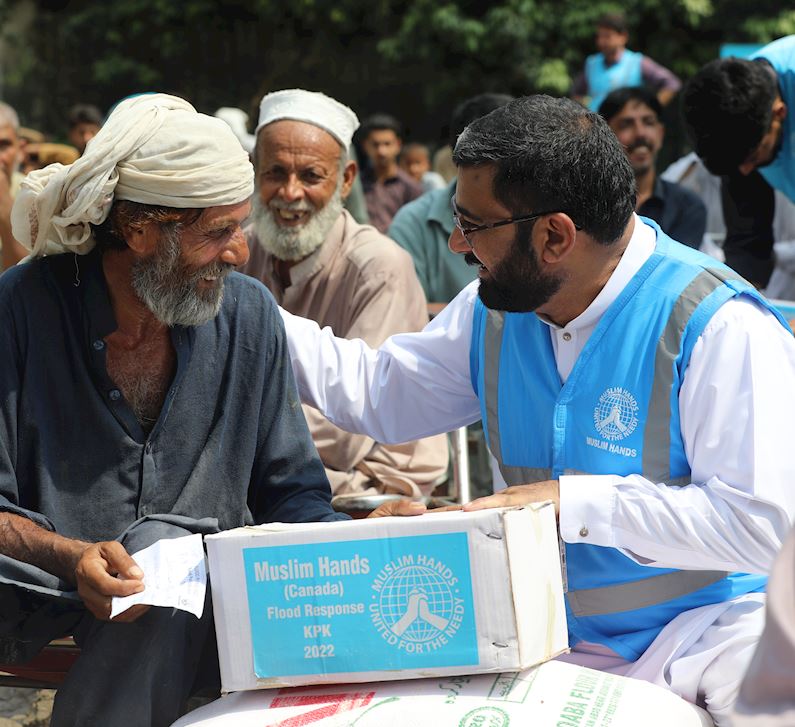
When Should I Give my Zakat?
Zakat can be given at any time of the year, however, many people choose to give it during the holy month of Ramadan to maximize the blessings and spiritual benefits.
Zakat is due once a lunar year has passed since the wealth first reaches the nisab threshold.
Give To Our Zakat Approved Appeals
Give Your Zakat with Confidence
The Impact Of Your Zakat
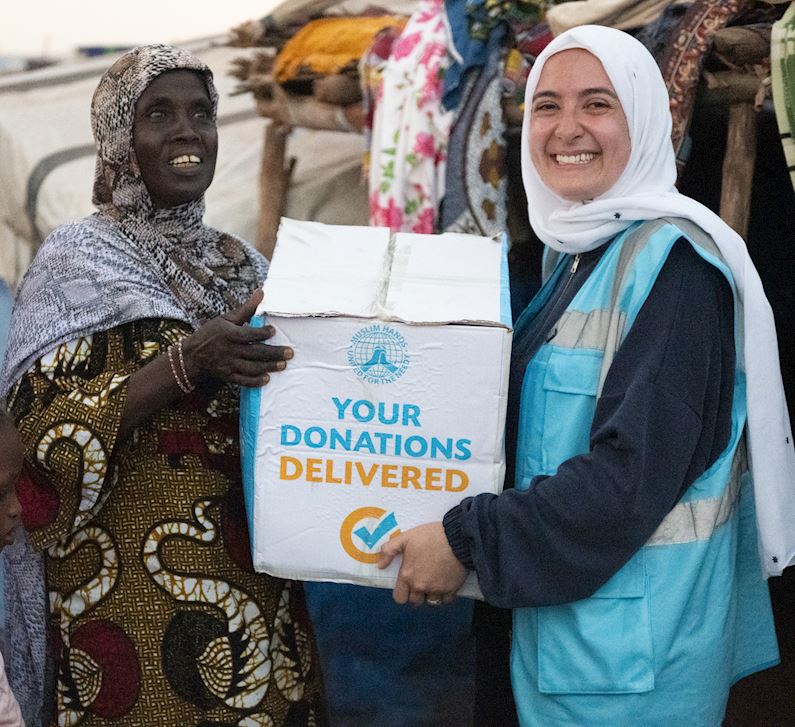
The Essential Zakat Guide
Zakat is the third pillar of Islam and a transformational concept that has the ability to change the world.
Zakat is intended to purify our wealth, not only physically, but also spiritually. It purifies our hearts against selfishness as well as ensuring that society's poorest are protected against hunger. and destitution.
It plays a key role in not only enshrining the rights of the poorest in the community, but it also enables beneficiaries to gain the skills and aid needed in today’s economy to break free from a life of poverty.
Zakat also crucially builds a relationship of consideration and appreciation between different members of society by providing ongoing support from the rich to the poor.
We know that calculating your Zakat and getting your head around the basics can be sometimes difficult and for that reason, we have created a short illustrated guide.
We’ve broken down some of the most common questions and cleared up the main misconceptions about Zakat.
Zakat Resources
News and UpdatesFrequently Asked Questions
- Q. Who must pay Zakat?
- Q. What is the nisab?
- Q. What type of wealth is Zakat due on?
- Q. When should I pay my Zakat?
- Q. Can I pay my Zakat in instalments?
- Q. How much of my donation goes directly to the cause?
- Q. What is the difference between Zakat and Sadaqah?
- Q. Who is Eligible to Receive my Zakat?
A. Every person who is sane, an adult (reached puberty), Muslim, and sahib-un-nisab must pay Zakat as a duty.
To be a sahib-un-nisab means you possess more wealth than the level of nisab for a period of one lunar year or more.
A. The nisab is the minimum value of wealth one must possess in order to pay Zakat. It is defined as the value of 87.5g of pure gold or 625g silver. Most scholars favour the lower value as it means that more people can pay Zakat and therefore there are more beneficiaries.
A. Gold and silver, including ornaments or
jewellery containing gold and/or silver
Cash held at home or in bank accounts
Stocks and shares owned directly or through
investment funds
Money lent to others
Business stock in trade and merchandise
Agricultural produce
Livestock animals such as cows, buffaloes,
goats, sheep, and camels
Produce of mines
Pensions
Property owned for investment purposes
A. You can pay your Zakat at any time, but many people chose to do so during the month of Ramadan when the reward for our good deeds is multiplied and it is easier to calculate the lunar year.
Zakat is due once a lunar year has passed since the wealth first reaches the nisab threshold.
A. Yes, you can. Simply calculate your Zakat payments, divide the amount by 12 and set up a regular gift, specifying Zakat as the type of donation.
A. For more information on our donation policy please see our ‘How Your Money is Spent’ page.
A. Zakat is an obligatory form of charity given annually to certain groups of people like the needy. Sadaqah, however, is a voluntary form of charity with no fixed amount and can be given to anyone in need.
A. The Poor (Al-Fuqara): Those who cannot meet their basic needs including food, clothing, and shelter.
The Needy (Al-Masakin): Those facing hardship due to an illness, disability, or other misfortunes or cannot support themselves financially.
Zakat Collectors (Amil Zakat): Those responsible for collecting, managing, and distributing Zakat.
New Muslims (Muallafatul Qulub): New converts to Islam who may need financial assistance.
Slaves or Captives (Riqab): Those who are in slavery or captivity. This category is less common today. They may help them secure their freedom or improve their circumstances.
Debtors (Al-Gharimun): Individuals unable to pay off their debts. Zakat can be used to help them pay off their debts.
For the Cause of Allah (Fi Sabilillah): Individuals involved in activities that spread Islam, such as scholars, preachers, and those working to further the cause of Islam.
The Wayfarer (Ibn as-Sabil): Stranded travellers or those in need of financial support while on a journey, even if they are wealthy but temporarily without resources during travel.
Pay Your Zakat with Confidence

Muslim Hands Canada is an international aid agency and NGO working globally to help those affected by natural disasters, conflict and poverty. Muslim Hands Canada is a registered charity with the Canada Revenue Agency (Charity Registration No. 81126 4985 RR0001).




